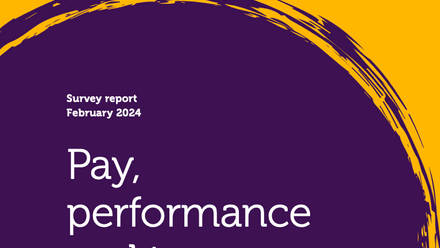Remuneration committees: Board effectiveness guidance update

Overall, the spirit of the Corporate Governance Code updates suggest a heightened importance of a company’s duty to take a more meaningful approach to fairness, rigour, transparency, wellbeing and reporting.
The changes apply to all premium listed companies (whether or not UK incorporated) in relation to accounting periods beginning on or after 1 January 2019.
Updated Board responsibilities
The Board’s responsibility is further clarified and broadened placing greater focus on several key areas, including:
- Greater engagement with a wider range of stakeholders, especially employees.
- Ensuring the overall corporate purpose and strategy is aligned with a healthy corporate culture.
- Diversity, inclusion and gender balance, both at a senior management level and as applied to a talent pipeline.
- A duty of care that directors’ time commitment to their roles is not excessive.
- Fairness and proportionality in pay, in areas such as comparable benefits for executives and employees (eg pension contribution rates), ensuring poor performance is not rewarded, enforcing directors’ obligations to mitigate loss and avoiding variable pay design that might increase reputational risk (eg target-based rewards that drive unwanted behaviour).
Updated remuneration committee responsibilities
The role of the remuneration committee is also clarified, and includes more robust requirements around governance, application of rigour in pay frameworks and clearer guidance on the composition of the committee.
Composition of the remuneration committee
Requirements have been clarified to stipulate that FTSE 350 companies must have a minimum of three independent non-executive directors on the remuneration committee (and two independent non-executives for smaller companies).
It seems prior experience of working on a remuneration committee before assuming the important role of Chair has now been given the importance it merits. It is now a requirement for the Chair to have been a remuneration committee member for at least 12 months prior to appointment.
Remuneration committee’s remit
Changes here are not significant but do clarify the need for a remuneration committee to be clear on the scope of its responsibilities, including the explicit authority to determine (rather than recommend) executive pay, now more clearly defined as “the first layer of management below the board, including the company secretary”.
In addition, greater emphasis is placed on the remuneration committee’s role in the formulation, management and reporting of remuneration policies and practices. The requirement that “performance-related elements should be clear, stretching, rigorously applied and aligned to the successful delivery of strategy” has been removed.
What should you do?
I’d strongly advise you to review your existing remuneration committee Terms of Reference and your pay and reporting procedures, and agree appropriate changes in line with both aspects of these updates – exec pay ratio reporting and Board effectiveness.
Even if your company is not in scope, choosing to adopt these principles early will send a clear message to employees, shareholders and customers that you take corporate governance seriously, and as legislation continues to evolve further (which it undoubtedly will) you will be ahead of the game.
The author is Gemma Bullivant, client director at Innecto Reward Consulting.
This article was provided by Innecto Reward Consulting.
In partnership with Innecto Reward Consulting
We have more than 20 years' experience in getting employers' pay and reward working harder for them.







